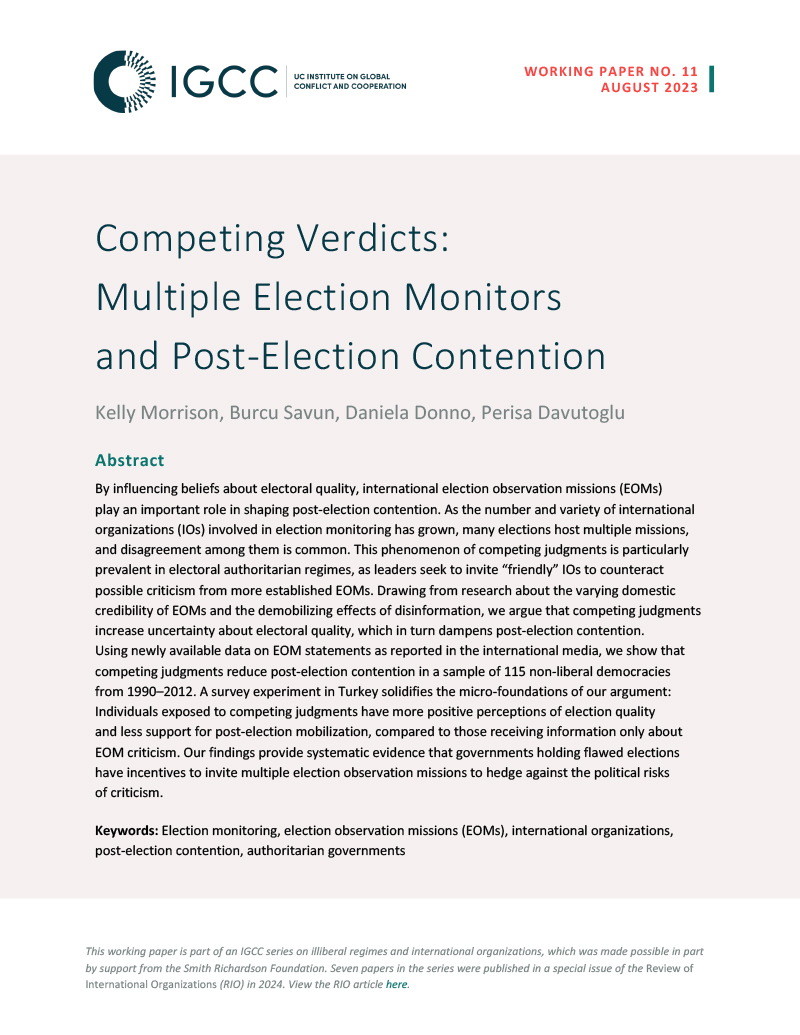Competing Verdicts: Multiple Election Monitors and Post-Election Contention

In this working paper, Kelly Morrison, Burcu Savun, Daniela Donno, and Perisa Davutoglu find that competing election observation mission judgements increase uncertainty in electoral misconduct and the reliability of election observers themselves.
DownloadBy influencing beliefs about electoral quality, international election observation missions (EOMs) play an important role in shaping post-election contention. As the number and variety of international organizations (IOs) involved in election monitoring has grown, many elections host multiple missions, and disagreement among them is common. This phenomenon of competing judgments is particularly prevalent in electoral authoritarian regimes, as leaders seek to invite “friendly” IOs to counteract possible criticism from more established EOMs. Drawing from research about the varying domestic credibility of EOMs and the demobilizing effects of disinformation, Kelly Morrison, Burcu Savun, Daniela Donno, and Perisa Davutoglu argue that competing judgments increase uncertainty about electoral quality, which in turn dampens post-election contention. Using newly available data on EOM statements as reported in the international media, they show that competing judgments reduce postelection contention in a sample of 115 non-liberal democracies from 1990–2012. A survey experiment in Turkey solidifies the micro-foundations of their argument: Individuals exposed to competing judgments have more positive perceptions of election quality and less support for post-election mobilization, compared to those receiving information only about EOM criticism. Their findings provide systematic evidence that governments holding flawed elections have incentives to invite multiple election observation missions to hedge against the political risks of criticism.
This working paper is part of an IGCC series on illiberal regimes and international organizations, which was made possible in part by support from the Smith Richardson Foundation. Seven papers in the series were published in a special issue of the Review of International Organizations (RIO) in 2024. View the RIO article here.
Thumbnail credit: European Parliament